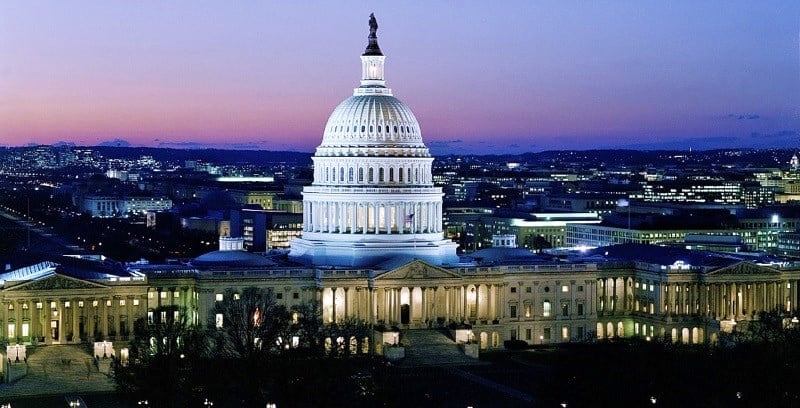Backlash after US Elections Board Green Lights Crypto Mining for Political Campaigns

The US Federal Election Commission (FEC) issued an advisory opinion that would allow individuals to contribute to political campaigns by donating their computer power to mine crypto for their favorite candidates.
The decision comes as American politicians are gearing up for the 2020 US presidential election, which quietly kicked off after the November 2018 midterm elections concluded.
In its November 13 memorandum , the FEC said that it’s permissible for an individual to lend his computer processing power to a crypto mining pool to benefit his preferred political candidate.
However, the commission underscored that the act counts as a campaign “contribution” — and is not considered “volunteering.”
Politics and Crypto Converge
The FEC was responding to a request by OsiaNetwork LLC, an obscure Delaware corporation that wants to serve as a platform through which people can donate their computing power to mine cryptocurrencies for political committees.
Basically, OsiaNetwork is trying to monetize the political fundraising process by charging campaigns to act as a platform for crypto mining pools.
“OsiaNetwork will allocate the mining rewards it receives among its clients ‘proportionately to the number of hashes that each committee’s volunteers generate in order to solve the block that generates the mining reward,” according to the FEC memo.

And here’s how it gets paid: “OsiaNetwork will then subtract its processing fee and transfer to each political committee funds in United States currency equivalent to the cryptocurrency value allocated to that committee.”
While OsiaNetwork had asked that the activity be considered “volunteering,” the FEC ruled that donating your computer power for crypto mining is a political “contribution” — it is not “volunteering.”
“It does not fall within the volunteer internet activities exception, and would result in contributions from both the individuals and OsiaNetwork to the participating political committees,” the FEC wrote.
Logically, this makes sense because it costs money to mine crypto, as CCN.com reported.
Activist: FEC May Be ‘Bamboozled’
The FEC memorandum has already fueled some backlash. The Center for Public Integrity, a liberal watchdog, said allowing crypto mining in political fundraising raises transparency issues.
Ronald Fein, the legal director for Free Speech For People (whose goal is to limit campaign spending), is worried that FEC officials are clueless about crypto.
“We worry that some members of the FEC may not have technical backgrounds and be bamboozled by this,” Fein told the Center for Public Integrity on Nov. 19.

Fein’s group sent a letter to the FEC opposing OsiaNetwork’s request. Specifically, Fein is concerned that shady political candidates will use crypto mining to bypass campaign finance rules limiting contributions to $2,700 per person.
“The request seems deceptive, in that it’s proposing something that seems like a modest extension of past opinions, but in reality would create a loophole to exploit and bypass all campaign contributions,” Fein said.
9 Federal Candidates Accepted Crypto In 2018
The FEC began allowing bitcoin donations to political campaigns in 2014.
In the 2017-2018 election cycle, nine federal candidates received a combined total of $570,000 in cryptocurrency donations, according to public records.
In 2016, Sen. Rand Paul of Kentucky made history when he became the first U.S. presidential candidate to accept bitcoin to fund his campaign, as CCN.com reported.
Paul is a Republican by party affiliation, but a libertarian by personal philosophy, so it’s no surprise that he embraces virtual currencies.
Rand Paul’s father, former US Congressman Ron Paul, was once a bitcoin skeptic who’s now calling for a tax exemption on all cryptocurrencies. He says the move could prevent a recession.
Featured Image from Shutterstock